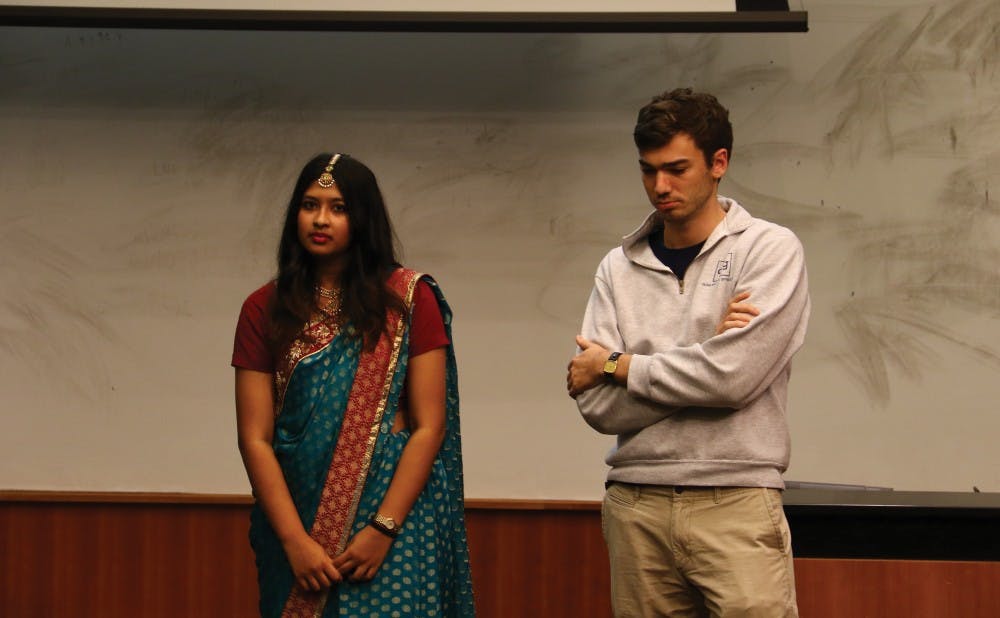Duke Student Government voted Wednesday to instate a new version of their previously defunded readership program that provided The New York Times, USA Today and the Durham Herald Sun. The new program will provide free online access to The New York Times for all undergraduates, and 120 hard copy papers around campus.
The program will cost between $18,400 and 19,000 annually, with half of the funding coming from DSG and the other half paid for by the DeWitt Wallace Center for Media and Democracy. The program will begin in January. The previous DSG newspaper program, which was first implemented in the early 2000s, cost $20,000 per year.
The authors of the statute creating the program—junior Tara Bansal, vice president for academic affairs, senior JP Lucaci, vice president for services and Policy Advisor Michael Pelle, also a senior—explained that approximately 400 students regularly using their online subscription would make the program cost-effective, and plan to reassess it at the end of the year. The original DSG student readership program was introduced in 2002 and continued for 13 years without change, Bansal noted.
“DSG was funding a really inefficient program for 13 years,” Bansal said. “Last year it seemed like... we could look for a better deal and reach out to administrators and faculty members to craft a better program, so it took a lot of time—we spoke to the library, we spoke to a lot of different departments.”
Bansal expressed excitement about the new program because she said it allows DSG to pay half of what it used to for more student access to news content. She also noted that the change came in response to student concern. After the program was canceled in August many students said that an online version was preferable.
Bansal noted that an issue with the old program was that although many people using the program were not undergraduates, DSG was paying for it out of an undergraduate fund.
“Now we can exclusively cater the program to undergraduates,” she said.
In other business:
Provost Sally Kornbluth addressed the Senate regarding her role as provost and her work to develop a relationship between students and administrators. She also explained the University’s “people-focused” plan to deepen the student experience, work towards diversity and inclusion for both faculty and students, link Duke’s global presence with its local presence in Durham and work with faculty to improve teaching and research.
She mentioned Duke Kunshan University’s ongoing financial negotiations with “partners” as well as the cross-disciplinary programs Duke has been working to launch, particularly the health policy center that was announced in October of this year and is set to open in January. She then fielded questions from the Senate and invited them to help develop solutions for diversity issues on campus and to help address recent incidents of hatred and racism.
“I thought it was a great opportunity to engage with the student body, especially in the wake of several unfortunate events that have happened at University of Missouri, Yale and here,” Executive Vice President John Guarco, a junior, said. “It was a great way to engage students in not only those types of conversations on incidents but also areas of our school relating to health policy and academic life.
DSG voted to charter one new group, the Capoeira Crazies. Capoeira is a Brazilian martial art that incorporates dance elements and has a popular class at Duke.
Freshman Michael Gulcicek was sworn in as a senator for equity and outreach.
Get The Chronicle straight to your inbox
Signup for our weekly newsletter. Cancel at any time.

